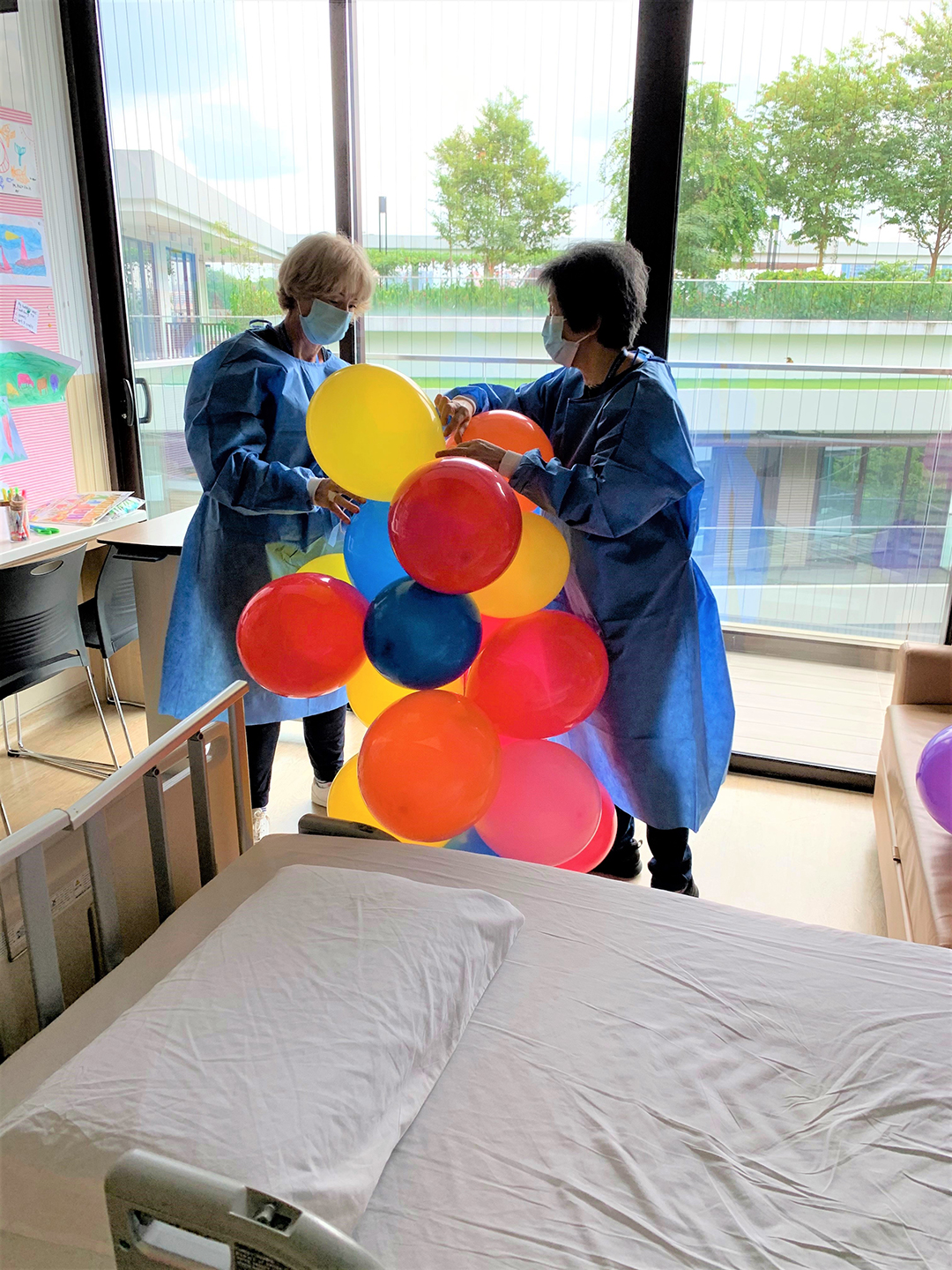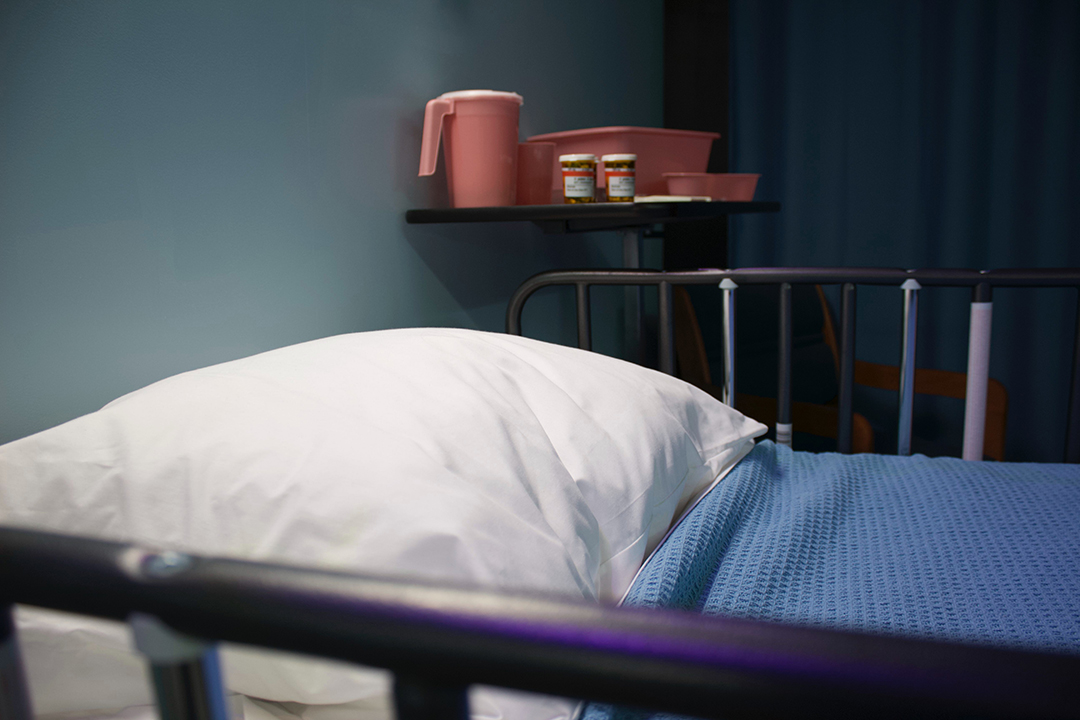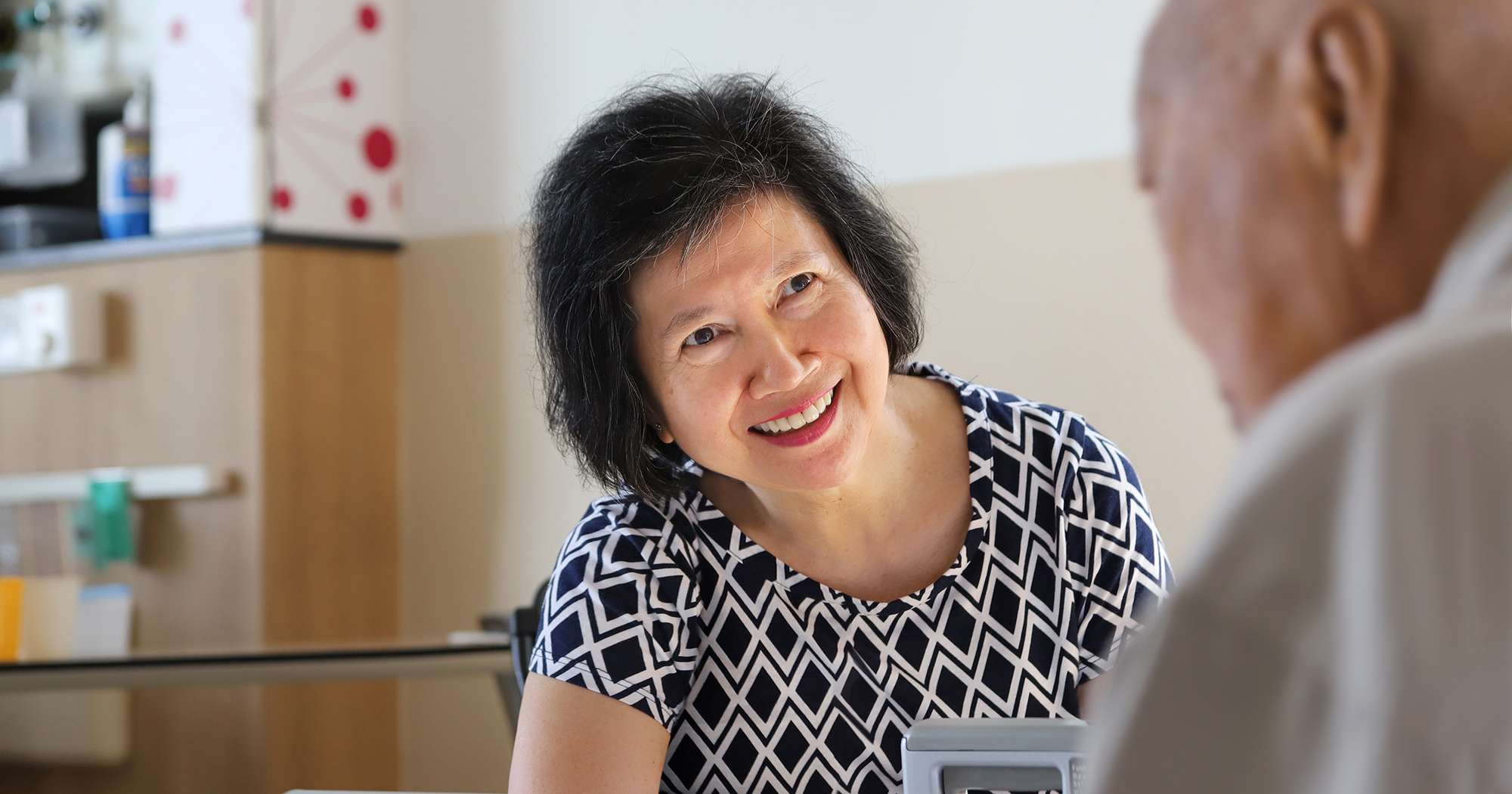There is a scene from 2014 science fiction epic "Interstellar" where Joseph Cooper (played by Matthew McConaughey), meets his daughter Murphy on her deathbed.
Joseph is not a day older than the day he left Earth in search of a new planet for humanity. Murphy, on the other hand, has become a grandmother (played by Ellen Burstyn).
That's not the only remarkable thing about this scene.
As Joseph walks into Murphy's room, the camera pans to reveal a group of people surrounding her bed.
"No parent should have to watch their own child die," she says to Joseph, "I have my kids here for me now — you go."
And so Joseph leaves the room, as Murphy's brood close ranks around the dying woman.
It's beautiful, poignant, and often what we picture when we think about death — surrounded by loved ones and friends who are there to send us off into the unknown.
But not everyone has that privilege. Some spend their last days on Earth alone, and it is these people whom Singaporean Lydia Tan has been journeying with at Assisi Hospice.
Tan, who is in her 60s, has been a volunteer-carer at the hospice for six years now. She befriends patients — often those with limited or no family support — and provides companionship in the twilight moments of their lives.
"We want to assure them that you're not here alone. We are here with you. We will journey with you all the way."
Tan was inspired to volunteer her time at Assisi Hospice after witnessing how the hospice staff cared for her friend's uncle in his last days.
He was there for about a month, but just as he was about to depart, he told Tan — as he gripped her hands — that his time at the hospice were the "happiest days of his life".
"He thought he was going to die a lonely old man...But what he felt and what he really saw from the nurses to everyone — the medical team, the doctors, therapists, housekeepers — was that he was loved."
No one knows with absolutely certainty what happens to us after we die. That uncertainty and fear, compounded by loneliness and often, health issues, can be a very difficult experience to go through.
To an outsider, Tan's work as a companion might not seem like much, especially when it is compared to the work of medical professionals, like doctors and nurses, in the hospice. But, companionship is impactful in its own way because it alleviates the loneliness and fear and brings a glimmer of joy to the patients.
"It takes away the fear of death and dying. They can feel that somebody is sitting with me all the time, somebody cares for me. Someone loves me... [the patients] actually look forward to volunteers coming in, sitting with them."
Over the past six years , Tan has observed that people on their deathbed yearn for that sense of family — the gentle caresses, the tender pecks on cheeks, the terms of endearment like ah ma or mama — because it is very assuring.
"So if we can be there to give of ourselves, to give them the time and presence...I've learned over the years that presence is the only thing that they require. If you are present with them, and to them, they can feel it."
No One Dies Alone
And indeed, Tan has given much of herself over the years.
She is at the hospice by 7.30am in the morning to prepare breakfast.
And then it is a whirlwind of various inpatient care tasks like sponging, diaper-changing. feeding and of course, spending time with the patients.
Sometimes Tan sits by their bed or hold their hands. Sometimes they watch a television show together. Most times, the volunteers try to bring some cheer to the patients by playing music or simply chatting with them.
 Tan and another volunteer decorating a patient's room. Photo was taken pre-Covid-19. Image courtesy of Assisi Hospice.
Tan and another volunteer decorating a patient's room. Photo was taken pre-Covid-19. Image courtesy of Assisi Hospice.
But the most impactful work that Tan does occurs in the final days of a patient's life, as part of the No One Dies Alone (NODA) programme.
Tan shares that hospice staff and volunteers look out for signs that a patient is about to pass on: They tend to sleep most of the time; some respond by opening their eyes when called. Breathing becomes either extremely fast or shallow.
Hospice volunteers like Tan will then start keeping vigil at their bedside 24/7 until their very last moment.
There's not much conversation that goes on. Instead, a lot of the volunteers' efforts go into the unspoken acts of providing reassurance and comfort, like holding their hand or touching their shoulder.
Providing that safe space for patients allows them to move on peacefully and gently without fear, said Tan, who has journeyed with 48 patients to date.
Bringing comfort through little acts of kindness
As a volunteer-carer, Tan's work with hospice patients goes beyond the bedside vigil. Comfort also comes in the form of the little actions that bring about peace.
Once, Tan, a Catholic, visited a Chinese temple to offer joss sticks and prayer on behalf of a patient who was particularly unsettled because he was unable to visit the temple, an activity which he did daily before he was warded.
"Even though I'm a Catholic, you know, to me, if it helps, why not right?"
She took photos of the joss sticks in the incense burners and showed them to the patient, who was very touched by her act of kindness.
"He was very, very grateful for that. And you could see the calmness...he passed away shortly after."
On another occasion, a patient who was struggling with his emotions asked Tan where he could find inner peace.
She brought him to the hospice chapel which, with its glass windows overlooking the lush greenery of MacRitchie Reservoir, provided a sense of serenity. As they sat side by side in silence, the patient broke down and wept.
A new perspective on life and death
Tan is grateful for these experiences from her volunteering stint, and her time at the hospice has changed her in ways that she couldn't initially imagine
For one, she's since gotten a new perspective on death.
Tan's mother passed away from a heart attack at 58. It was extremely traumatising for Tan, who was particularly close to her mother.
"I can honestly tell you, I didn't even dare go near her [or] touch her," Tan recalled.
And so when she started volunteering at Assisi Hospice, it was "mind-boggling" and "eye-opening" to find that a place associated with death and all its attendant negativity could be filled with so much joy and warmth.
When the volunteer opportunity first came up, Tan had doubts about being able to do the job.
"I asked myself, 'Am I able to do that?' If I don't try, I will never be able to do it. So I gave myself time to do that, come in and immerse myself, and just slowly over time, I really felt the joy."
 Tan's time spent with patients on their deathbeds has given her a new perspective of death. Photo by Bret Kavanaugh on Unsplash
Tan's time spent with patients on their deathbeds has given her a new perspective of death. Photo by Bret Kavanaugh on Unsplash
Ironically, Tan's time with the dying has also given her a new appreciation for life.
She chuckled as she recounted how she says a little thank-you prayer each morning for having a new day to live. Gratitude, she mused, is key to living a full life.
Of course, Tan grieves whenever a patient passes on. It's unavoidable especially if it involves one whom she spent time with. But it is precisely that precious bond forged through time spent together which she has learned to be grateful for.
"Every time when a when a patient passes on, I thank them for being with me, for allowing me to be their friend, their sister, whatever it is, you know...it was a gift that they gave me."
If you wish to volunteer with Assisi Hospice, you can leave your details here for the hospice to contact you once volunteer recruitment resumes (it has been put on hold temporarily due to Covid-19 measures).
Those who wish to donate to the hospice can do so here.
Stories from the City of Good is a series on ordinary Singaporeans giving their best for others and inspiring each other to become a Singapore that cares. This is a collaboration between Mothership and the National Volunteer and Philanthropy Centre.

Top image was taken pre-Covid-19. Image courtesy of Assisi Hospice.
If you like what you read, follow us on Facebook, Instagram, Twitter and Telegram to get the latest updates.
